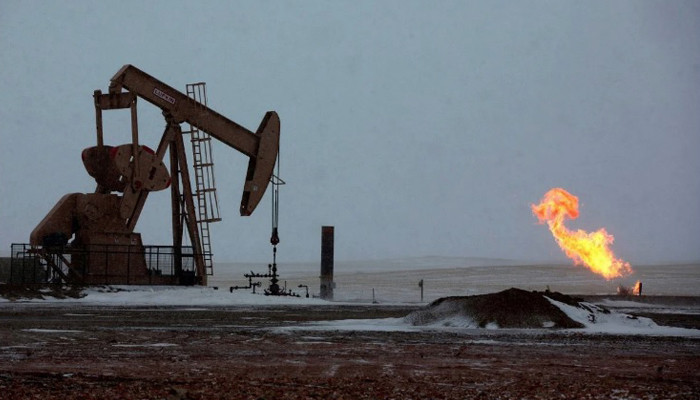EU’s Russian oil ban stalls as Hungary holds up sanctions
 1389 Sunday, 08 May, 2022, 20:48 European Union countries are struggling to agree on the details of a new package of Russia sanctions including how a ban on Vladimir Putin's oil industry would work, diplomats told POLITICO. Talks between the bloc's 27 countries broke up without a deal on Sunday, and officials in Brussels are now expected to draft a new compromise plan before calling another meeting of diplomats on Monday or Tuesday. Envoys have met multiple times to discuss the EU's sixth package of sanctions against Russia without managing to sign off on the proposals, first publicly announced by European Commission President Ursula von der Leyen on May 4. The ongoing difficulties reflect the fact that the measures being lined up — critically a complete ban on imports of Russian crude and refined fuels — will be deeply painful for some countries to absorb. Shutting down the EU market for Russian fossil fuels is seen as a critical strategy for denying Putin the revenue that is helping finance his war in Ukraine. By April 27, the bloc had imported about €44 billion of fossil fuels from Russia by shipments and pipelines since the invasion began, according to the Centre for Research on Energy and Clean Air. Hungary and Slovakia — both heavily reliant on Russian oil — led the objections to von der Leyen's blueprint last week and, along with the Czech Republic, won concessions from the Commission so they would have more time to comply with the ban. It was Viktor Orbán's Hungarian government again on Sunday that held up a deal, diplomats said. On Friday he warned that the plan to phase-out Russian oil would devastate Hungary's economy, likening the impact to a "nuclear bomb." "There is no compromise among member states," an EU diplomat said. "Hungary is still opposing [the package], and this is the problem." After failing to strike a deal on Friday, EU ambassadors re-convened on Sunday for another round of negotiations but the talks were over by early afternoon. EU diplomats had initially expected to reach an agreement by Friday or over the weekend at the latest. The European Commission is proposing phasing out Russian crude oil within six months and refined oil by the end of the year. The most recent plans, circulated on Sunday and seen by POLITICO, envisage giving Hungary and Slovakia until the end of 2024, and the Czech Republic until end of June of that year, before the oil embargo kicks in. But one EU diplomat said the compromise did not go far enough for Hungary, saying Budapest is pushing to be completely exempted from the oil ban. Orbán previously indicated his country needed five years at a minimum, pointing to Hungary being landlocked and therefore more dependent on Russian oil than other countries that can receive the resource through their ports. "It’s impossible," the diplomat said. "They want something like a total opt-out. But that's crazy." Bulgaria is also unhappy with the text, a senior EU diplomat told POLITICO, asking to also get a longer phase-out period. Diplomats expect the next meeting of EU ambassadors to take place on Monday or Tuesday, with the Russian president expected to set out his further intentions on Monday. They also downplayed the disagreements, saying that only some details were left to negotiate and that a deal on Tuesday would be realistic. The Hungarian embassy could not be reached for comment. The planned oil embargo is not the only point of contention among EU countries. Other disagreements include, for example, whether EU vessels should be banned from transporting Russian oil. This part of the package has been put on hold waiting for some form of coordination at G7-level. The aim is to make sure the measures are effectively targeted against Russia and are watertight so that countries such as China or Turkey do not take advantage of a change in EU rules. The difficulties are only likely to get worse as the EU ratchets up its sanctions against Russia's invasion of Ukraine, especially when attention turns to switching off supplies of Russian gas. |

Trump ends some tariffs, imposes new 10% global one
79021.02.2026, 12:12
Washington, Tehran may discuss US access to Iran’s mineral resources
176417.02.2026, 11:20
Trump’s New World Order Is Pushing Sweden to Warm Up to the Euro
222716.02.2026, 20:24
Trump says Board of Peace members pledged over $5B for Gaza
225615.02.2026, 21:39
EU plans crypto ban for Russia, FT reports
309211.02.2026, 00:48
US Treasury Secretary says US sanctions crushed Iran’s economy and sparked protests (video)
397906.02.2026, 10:43
Elon Musk just became the first person ever worth $800 billion after SpaceX acquired xAI
395604.02.2026, 18:30
Xi Jinping calls for China’s renminbi to attain global reserve currency status
501001.02.2026, 23:05
